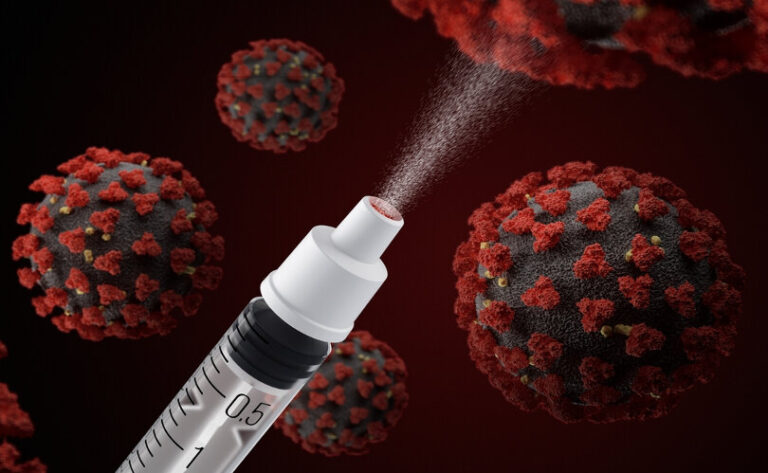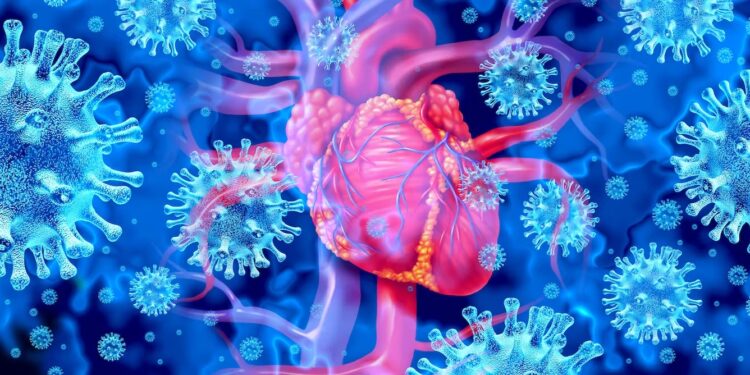Guillain-Barré Syndrome Linked to COVID-19 Vaccine: CDC Study

According to a new study, one of the COVID-19 vaccines available in the United States may cause a disruptive syndrome.
The Centers for Disease Control and Prevention (CDC) reported in a Feb. 1 paper that 73 cases of Guillain-Barré Syndrome, which causes the immune system to attack parts of the nervous system, were confirmed in adults within 42 days of vaccination with Johnson & Johnson’s shot.
Based on the typical annual rate of the syndrome, only 31 cases were expected.
In a typical year, 3,000 to 6,000 cases of the syndrome are diagnosed in the United States.
Several non-COVID vaccines, including the swine flu vaccine, have been linked to Guillain-Barré Syndrome.
Increased reports following the Johnson & Johnson vaccination were reported in 2021, just months after the shot was approved, prompting regulators to include information about the observed increased risk in fact sheets distributed to vaccine recipients and providers.
The new study began with reports filed with the Vaccine Adverse Event Reporting System (VAERS), which the CDC co-manages, and worked to determine whether each report was supported by medical records and other data.
They investigated reports of Guillain-Barré Syndrome (GBS) following vaccination with vaccines from Johnson & Johnson, Pfizer, and Moderna from December 14, 2020 to January 28, 2022. Both of these employ messenger RNA (mRNA) technology.
Researchers confirmed 295 cases in total. In terms of numbers, the majority were after mRNA vaccines. However, many more doses of the Moderna and Pfizer vaccines were administered during the study period.
The researchers discovered a greater-than-expected number of cases following the Johnson & Johnson vaccination and a lesser-than-expected number of cases following the Moderna or Pfizer vaccines.
The results, according to the researchers, “suggest that Ad26.COV2.S vaccination was associated with GBS and that GBS after BNT162b2 and mRNA-1273 may represent background incidence.” Johnson & Johnson’s vaccine is known as Ad26.COV2.S. Pfizer’s vaccine is known as BNT162b2, while Moderna’s vaccine is known as mRNA-1273.
Requests for comment were not returned by any of the companies.
The study’s limitations included a lack of dose-specific analyses.
The sources of funding were not disclosed.
The researchers noted that the findings added to a growing body of research on GBS cases following vaccination with the Johnson & Johnson or AstraZeneca COVID-19 vaccines. Both are based on adenovirus vectors. The AstraZeneca vaccine was never approved in the United States.
Officials in the United States have already advised people not to use Johnson & Johnson’s vaccine due to a link to thrombosis with thrombocytopenia syndrome, or low platelet levels combined with blood clotting. However, it is still legal to administer in the United States.
As of Feb. 2, approximately 18.9 million doses had been administered.
Deaths
Ten people who developed GBS after receiving COVID-19 vaccination died. Four deaths occurred after Pfizer vaccination, four deaths occurred after Moderna vaccination, and two deaths occurred after Johnson & Johnson vaccination.
GBS was listed as the cause of death for seven of the people, according to an analysis of death certificates and other records. “However, there was no epidemiologic evidence to suggest an association between either mRNA vaccine and GBS,” the CDC researchers said.
The deceased in one of the deaths caused by Johnson & Johnson’s shot began experiencing symptoms of the syndrome 70 days after vaccination. This is “outside an epidemiologically accepted risk interval to assume an association between vaccination and GBS,” according to the researchers.
The symptoms of the other person who died appeared five days after vaccination.
“Based on the available evidence, it is biologically plausible that Ad26.COV2.S vaccination may have been associated with the death, although definitively establishing such an association is difficult with the available information, and conclusions about causality cannot be made in this observational study,” said the authors of the study.
Another Recent Paper
Another recent paper, published as a preprint on Jan. 19, found an increased risk of GBS after the first and second doses of Moderna’s vaccine, as well as the first dose of the AstraZeneca vaccine.
Even after analyzing by subgroups such as males and females, they found no evidence of an increased risk following Johnson & Johnson or Pfizer vaccination.
Researchers discovered 287 cases of GBS following COVID-19 vaccination, including 17 after Johnson & Johnson vaccination. The risk, like in the US study, was influenced by the number of doses administered in Italy during the study period, which was from December 27, 2020 to September 30, 2021.
The Italian researchers used data from regional healthcare databases and a self-controlled case series design, which has previously been used to track vaccine safety.
The study’s limitations included not reviewing clinical records to verify reported cases, which was funded by the Italian drug regulator AIFA.





